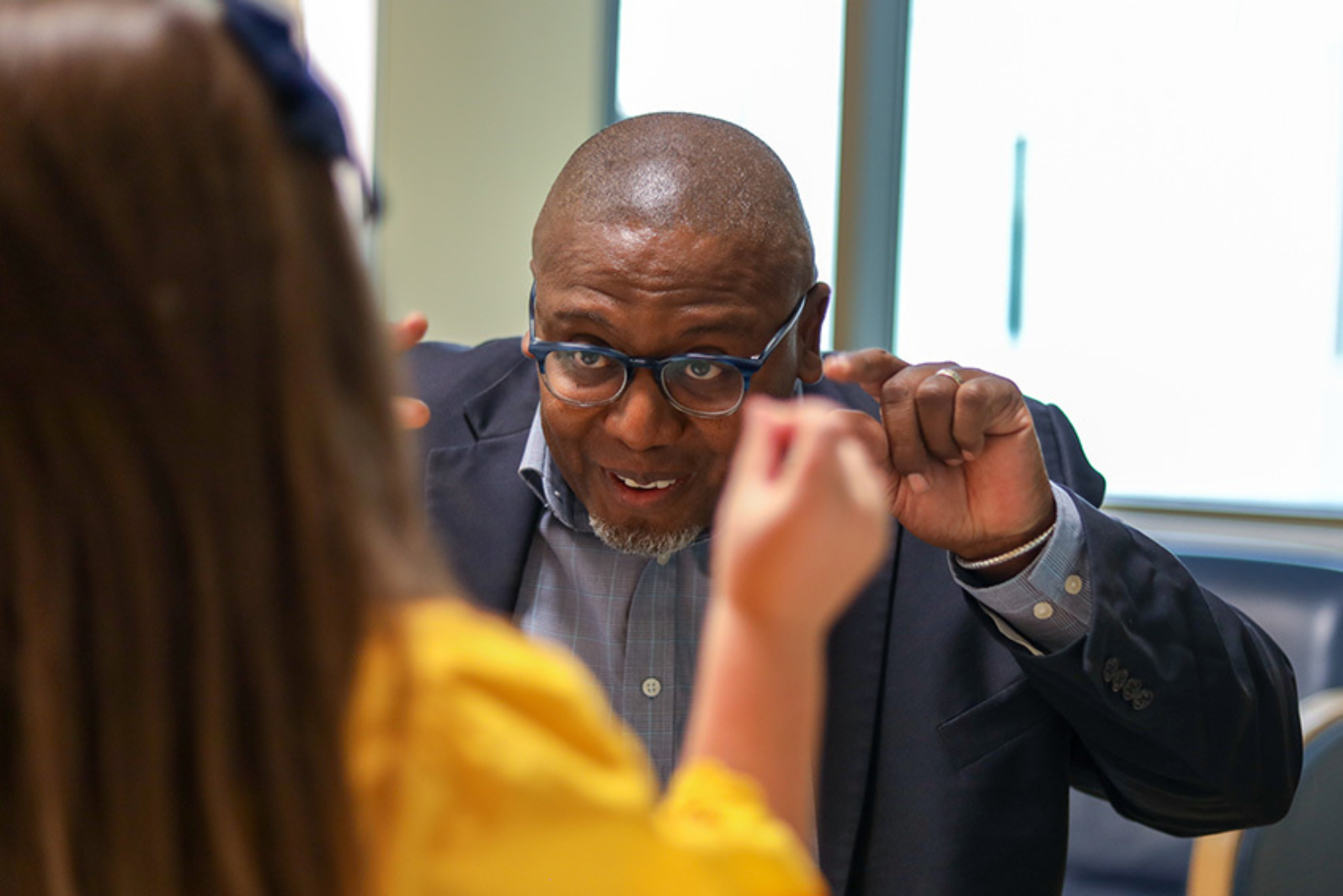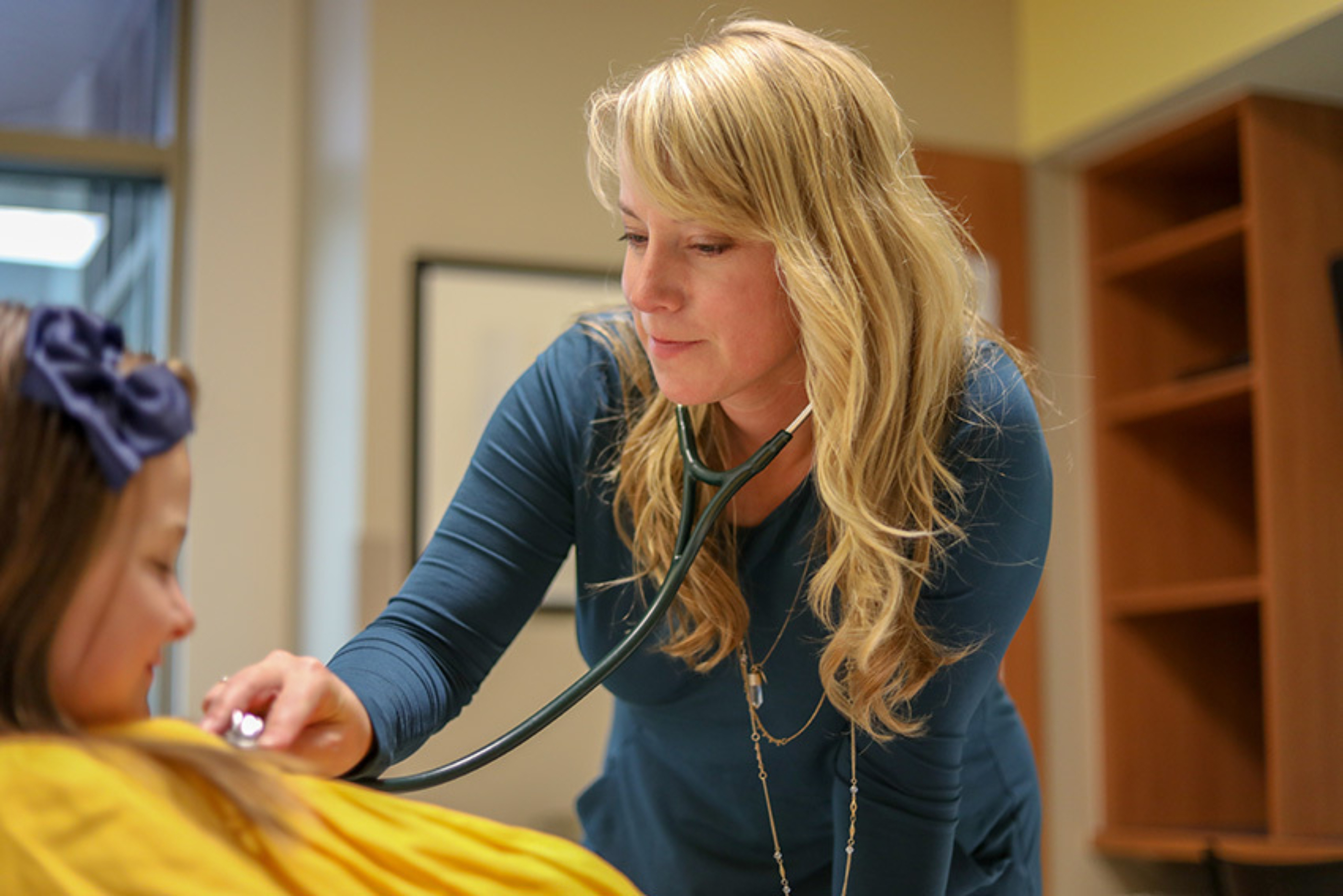UT Health Austin Pediatric Neurosciences at Dell Children’s Welcomes the Comprehensive Pediatric Epilepsy Center
The Dell Children’s Comprehensive Epilepsy Center is a level 4 epilepsy center and the only dedicated pediatric epilepsy center in Central Texas
Reviewed by: Dave Clarke, MD, and Steve Roach, MD
Video by: Alyssa Martin and Jeshua Mauldin
Written by: Abbi Havens
Epilepsy is a complex neurological disorder. In fact, epilepsy is not a single condition. It is a collection of different “epilepsies” that share a common trait: the tendency to have seizures that begin in the brain. Treating such a multifaceted and diverse condition takes a team of experts, innovators, and caregivers to help children not only cope with epilepsy, but also live and thrive. The Dell Children’s Comprehensive Pediatric Epilepsy Center is a specialty center within UT Health Austin Pediatric Neurosciences at Dell Children’s, a clinical partnership between Dell Children’s Medical Center and UT Health Austin.
The Dell Children’s Comprehensive Pediatric Epilepsy Center has been recognized as a Level 4 Epilepsy Center by the National Association of Epilepsy and provides the most complex forms of intensive neurodiagnostic monitoring as well as extensive neuropsychological, psychosocial treatment, and complete evaluation for epilepsy surgery. In addition to offering the best pediatric neurology services, the Dell Children’s Comprehensive Pediatric Epilepsy Center houses the only dedicated pediatric Epilepsy Monitoring Unit (EMU) in Central Texas.
By building bridges with The University of Texas at Austin and the community, the team is able to put an emphasis on communication, high-quality care, research, and patient-centered outcomes. This is enhanced by generous research support from UT Health Austin’s Mulva Clinic for the Neurosciences.
The care team consists of more than 20 experts, including epileptologists, neurosurgeons, nurse practitioners, ketogenic diet specialists, neuropsychologists, neuroscientists, neuroradiologists, and more. Each brings their own perspective and specialization to the program to ensure children receive holistic care to treat every aspect of their condition and vastly improve their quality of life.

A Multidisciplinary Approach
A multifaceted disorder, such as epilepsy, requires a multidisciplinary approach. “Our multidisciplinary team collaborates exceptionally well,” says pediatric neuropsychologist Nancy Nussbaum, PhD. “Many programs have multidisciplinary teams, but the way we work together to understand a child’s epilepsy in its fullest form is exceptional. This is so important because epilepsy is such a complex disorder that it affects children in terms of their physical health as well as their educational, academic, emotional, and cognitive functioning; family relationships; and more. Because it is so complex, we all have to work together to understand how each child’s epilepsy affects their functioning and how to best help them with managing every aspect of it.”
Taking a multidisciplinary approach is all about maximizing convenience and outcomes for patients and families. “In my mind, there are two ways to look at medicine,” explains pediatric epileptologist Dave Clarke, MD, who serves as the Chief of the Dell Children’s Comprehensive Pediatric Epilepsy Center. “A child may come into a clinic with epilepsy, a provider tries to figure out what’s going on, and then they send that child to another specialist, and so on. For the patient and their family, that means more time, travel, and worry. But in a multidisciplinary clinic, the key components to treating a child with epilepsy are all right here. It’s like a puzzle, and we have every piece to maximize the benefit to the patient.”
The Dell Children’s Comprehensive Pediatric Epilepsy Center acts as a one-stop shop. “Many of our patients have multiple comorbidities, meaning they have a lot more that goes along with their epilepsy than just seizures, so it’s beneficial to see multiple specialists at the same time,” says pediatric epileptologist Karen Skjei, MD. “But, it’s a lot more than that. Medicine today is so specialized and subspecialized that everyone is in their silo, and what multidisciplinary programs allow us to do is broaden our perspective, share ideas, and enhance our care of the patient.”

The Future of the Dell Children’s Comprehensive Pediatric Epilepsy Center
According to Dr. Clarke, there’s no limit to what the team can accomplish. “I won’t even say the sky is the limit because that’s not the limit anymore. We will continue to grow and gain every modern technique and device available to make advancements that can revolutionize care and minimize morbidity. We’re just going to continue to push the edges of science and medicine to move forward,” says Dr. Clarke.
For Dr. Skjei, the future of the center will be even more accessible. “One of the projects we’re working on is developing a Spanish-language clinic so the entire patient experience will be in Spanish, no interpreters needed. That includes everything from the letter patients receive telling them where to park to their lab results and everything in between. We’re doing this to try to improve access. We want to remove potential obstacles to facilitate care and improve utilization for Spanish speakers in our region. There is currently nothing like this in the country,” explains Dr. Skjei.
Pediatric nurse practitioner Janet Wilson, MSN, CPNP-PC, predicts we can expect growth, growth, and more growth in the future. “We’re growing to the point that we’re nearly bursting at the seams, and that’s a wonderful thing,” says Wilson. “That just means that we have more and more experts in the field, constantly discovering new ways to serve our children and give them the best care possible.”
Treating a condition as complicated as epilepsy isn’t easy. But it’s the real people who comprise the team and their skill, passion, and kindness that make this work possible. UT Health Austin and Dell Children’s Medical Center are proud to be a part of it.
For more information about the Dell Children’s Comprehensive Pediatric Epilepsy Center or to schedule an appointment, call 1-512-628-1855 or visit here.